Question And Answer
Publications
Articles, publications, books, tools and multimedia features from the U.S. Institute of Peace provide the latest news, analysis, research findings, practitioner guides and reports, all related to the conflict zones and issues that are at the center of the Institute’s work to prevent and reduce violent conflict.
The Current Situation in Serbia and Montenegro
Congressional Testimony by Dan Serwer, director of the Balkans Initiative and Peace and Stability Operations.
Serbia Needs a Push in the Right Direction
More than three years after Serbia's reformists overthrew the regime of Slobodan Milosevic, Belgrade appears to be at a crossroads again.
Peace Agreements: Serbia and Montenegro
Proceeding Points for the Restructuring of Relations Between Serbia and Montenegro (03-14-2002) Posted by USIP Library on: April 29, 2002 Source Name: Text faxed from the Republic of Montenegro Trade Mission to the United States, Washington, D.C. Date faxed: April 25, 2002
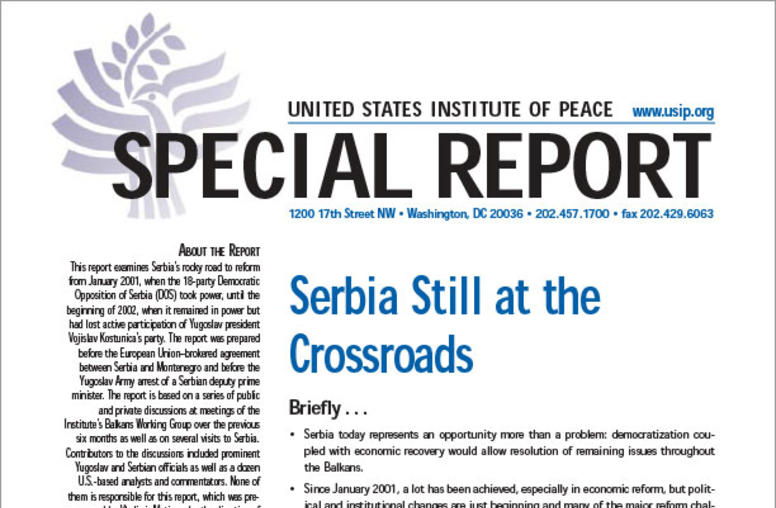
Serbia Still at the Crossroads
Summary Serbia today represents an opportunity more than a problem: democratization coupled with economic recovery would allow resolution of remaining issues throughout the Balkans. Since January 2001, a lot has been achieved, especially in economic reform, but political and institutional changes are just beginning and many of the major reform challenges Serbia faces remain unmet.
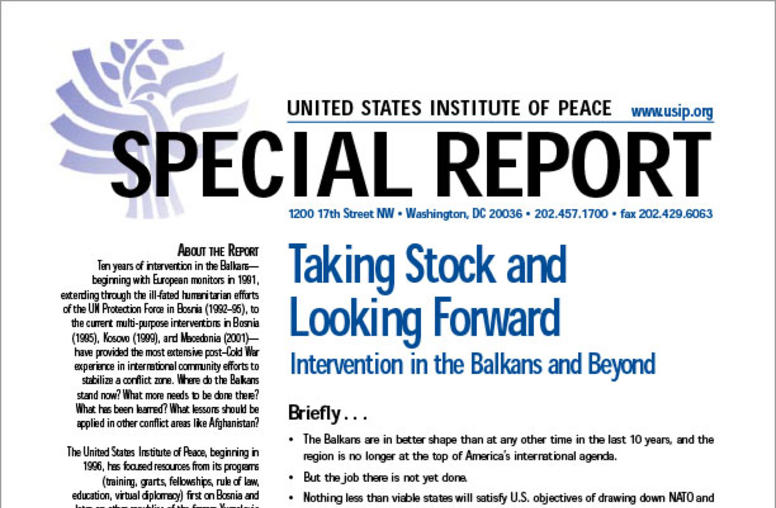
Taking Stock and Looking Forward: Intervention in the Balkans and Beyond
Ten years of intervention in the Balkans—beginning with European monitors in 1991, extending through the ill-fated humanitarian efforts of the UN Protection Force in Bosnia (1992–95), to the current multi-purpose interventions in Bosnia (1995), Kosovo (1999), and Macedonia (2001)—have provided the most extensive post–Cold War experience in international community efforts to stabilize a conflict zone. Where do the Balkans stand now? What more needs to be done there? What has been learned? What...
Truth Commission: Serbia and Montenegro
Truth Commission: Truth and Reconciliation Commission for Serbia and Montenegro Duration: 2002 - 2003 Charter: Presidential decree 59/02 Commissioners: 15-19 Report: No report
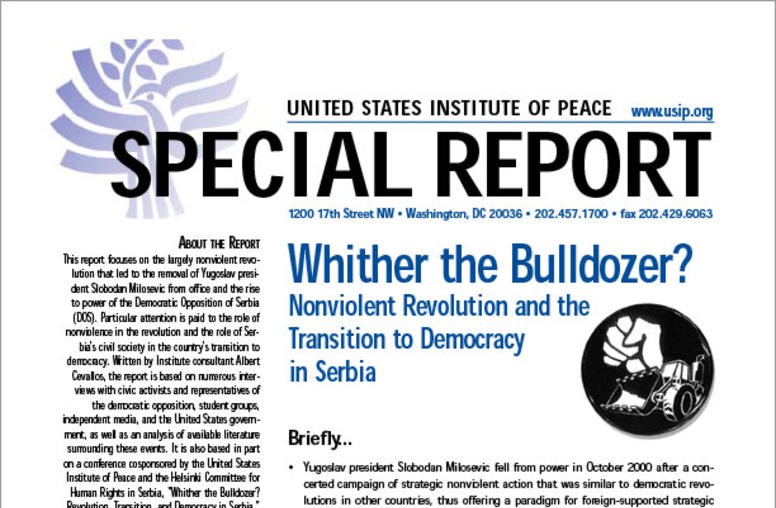
Whither the Bulldozer?: Nonviolent Revolution and the Transition to Democracy in Serbia
Yugoslav president Slobodan Milosevic fell from power in October 2000 after a concerted campaign of strategic nonviolent action that was similar to democratic revolutions in other countries, thus offering a paradigm for foreign-supported strategic nonviolent action against other autocratic regimes.
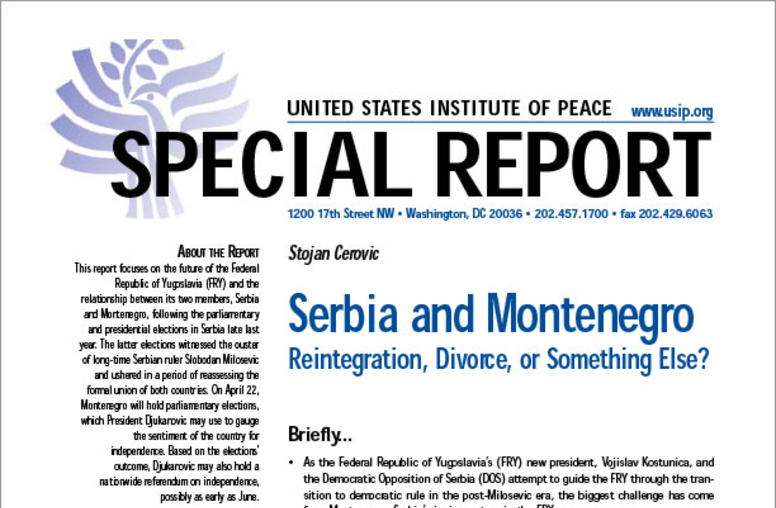
Serbia and Montenegro: Reintegration, Divorce, or Something Else?
As the Federal Republic of Yugoslavia's (FRY) new president, Vojislav Kostunica, and the Democratic Opposition of Serbia (DOS) attempt to guide the FRY through the transition to democratic rule in the post-Milosevic era, the biggest challenge has come from Montenegro, Serbia's junior partner in the FRY.
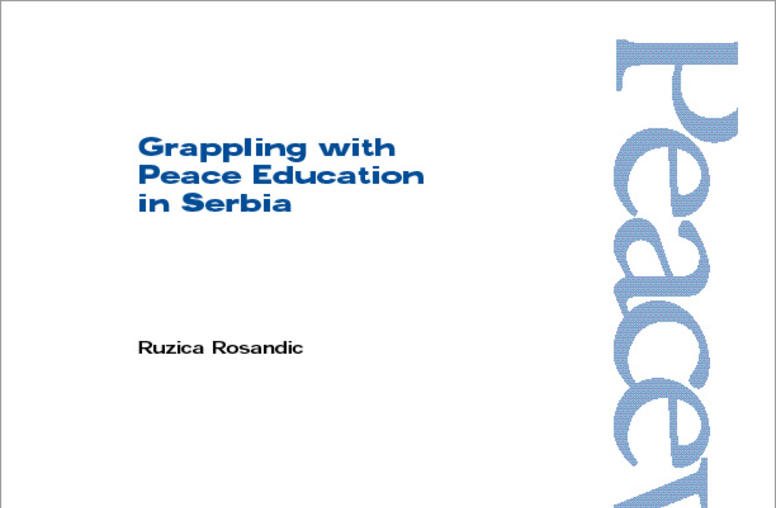
Grappling with Peace Education in Serbia
Since the violent breakup of the Federal Republic of Yugoslavia began in 1991, the children of Serbia have suffered the debilitating effects of wartime conditions. These include various forms and degrees of deprivation: social, emotional, moral, and intellectual.
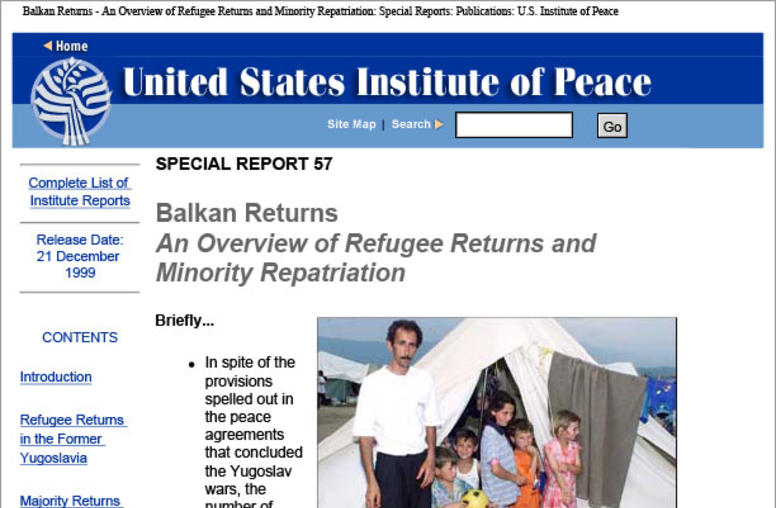
Balkan Returns: An Overview of Refugee Returns and Minority Repatriation
Summary In spite of the provisions spelled out in the peace agreements that concluded the Yugoslav wars, the number of minority returns throughout the former Yugoslavia is still low, indicating that there are considerable barriers to repatriation. The failure to draw refugees back to their towns and villages threatens the reconstruction of civic life, hinders the process of reconciliation and postpones the permanent conclusion of hostilities. The return of minorities is a regional m...